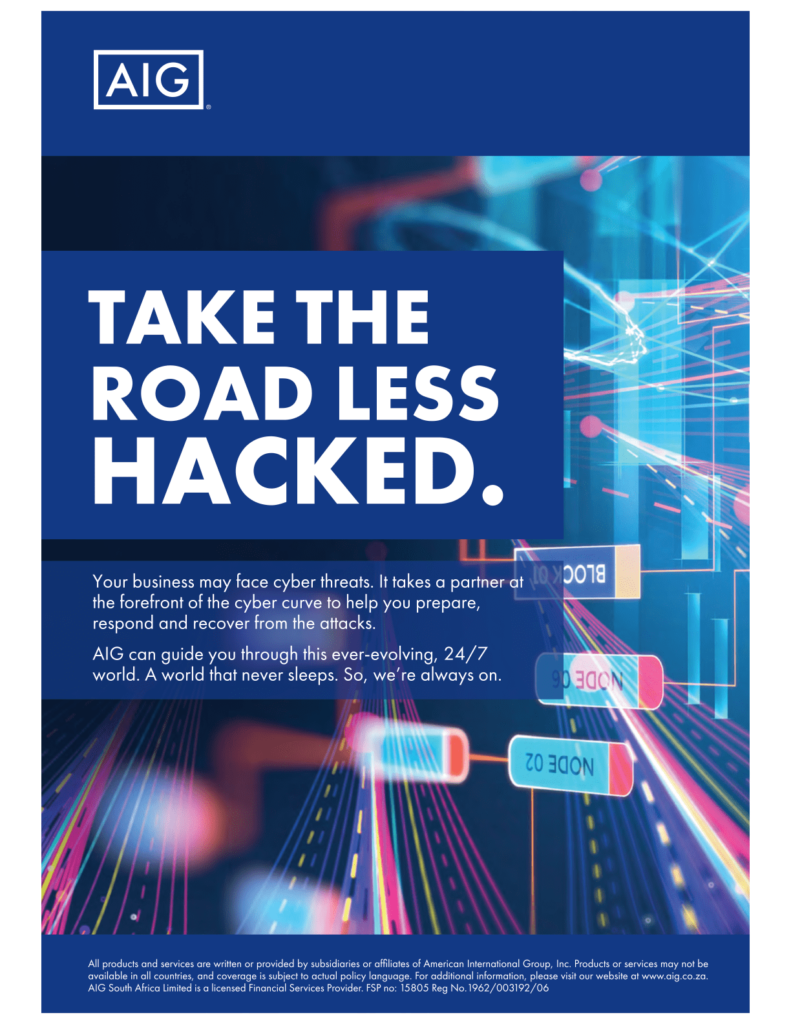
The scourge of cyber security and crime that has been escalated over the past decade, received a shot in the arm from COVID. The rapid increase in online spending and the work-from-home environment has exposed many weaknesses for cybercriminals to take advantage of. Zamani Nrgidi, Cyber Solutions Client Manager at Aon South Africa shares his thoughts.
- As we think about the current economic climate post COVID-19, crime statistics have dropped significantly in more traditional aspects however cybercrime being on the rise, it can be rationalised going forward that the trend will most likely continue as a viable source of revenue for criminal syndicates. Ransomware for hire services will become normalised as things continue, which is somewhat exacerbated by technology such as blockchain and crypto – essentially providing anonymised method of payment.
- The insurance market has to be more innovative than the market in a sense, in order to bear the risk of economic activities taking place, and it is becoming increasingly difficult as a result of the intangible nature of the risks that are materialising. Cyber for instance has a far more significant impact on aspects such as supply chain, the recent SolarWinds hack further highlights this. More and more information is being made available but the nature of black swan incidents (e.g. COVID) will have a more devastating impact but organisations must focus on the global data made available to them to reduce impacts from grey swan events.
- Companies (both big and small) have to compete in an evolving economic market, which largely means they must bear risks they would typically not be exposed to. The digitalisation of traditional business, in conjunction with the benefits technology provides such as scalability and allowing to access global markets, strengthen the importance to properly articulate these intangible risks, as well as drive spend for better information security within their environment.
- Companies by their nature are entrepreneurial – meaning that they are inclined to be optimistic and take risks in order to increase shareholder value and further improve customer experience, so by their nature being risk-averse is not something that comes naturally (except for maybe very well regulated sectors), so it is imperative going forward, as Industry 4.0 develops, to be as risk resilient as possible, in order to have a sustainable business going forward.


